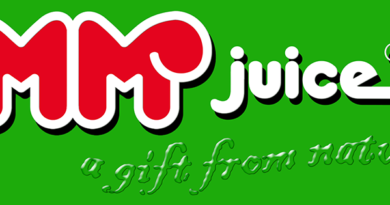Critical Points Of Halalness Of Animal Food Ingredients From The Perspective Of Halal Certification
Bismillaahirrahmaanirraahiim
Allah SWT has commanded to consume halal to all mankind according to His word:
“O mankind, eat what islawful and good from what is found on the earth, and do not follow the steps of the devil; for indeed the devil is a real enemy to you”.
(Q.S. Al-Baqarah (2): 168).
The command of Allah SWT to consume halal was delivered to all mankind not only to Muslims. This is because the food consumed has a broad impact on human life, including: affecting growth and development, health, intelligence, affecting nature and behavior, acceptance or rejection of good deeds and prayers.
The requirements for halal food products in Islamic law are: halal in substance; halal in the way it is obtained, processed, stored, transported and served. Animal food or food of animal origin is all food produced from animals and suitable for human consumption. These can include meat, eggs, fish and milk. Based on the potential for halalness, eggs, milk and fish have a low critical point and even include ingredients that are exempt from the obligation to be halal certified if they come from non-slaughtered animals without processing or physically processed and without the addition of auxiliary materials, additives, or other materials. More clearly, the products in question include fresh eggs; freshmilk; fresh seawater / fresh / brackish fish, frozen, dried or salted. This is based on the Decree of the Minister of Religious Affairs of the Republic of Indonesia Number 1360 of 2021. If it undergoes a processing process, the facilities or processing tools used must also be traced. If the tool is not contaminated with haram material processing tools, it is guaranteed halal.
Meat, on the other hand, is an animal food that has a high critical point. Meat is widely used as a raw material for food products. There are several verses of the Quran that form the basis of the tipping point for the prohibition of meat, including Al Baqarah: 173.
“Indeed He has forbidden you carrion, blood, pork, and animals slaughtered in the name of other than Allah. But whoever is compelled to eat meat by necessity, not by desire, and does not transgress the limits, there is no sin on him.
Verily, Allah is Forgiving, Merciful.” (Al Baqarah 173)
Essentially the same narrative is also found in Surah Al Maidah 3; Al An’am 145, and An Nahl 115.
115. Based on these verses, the critical point of meat halalness is:
First, carrion meat. Carcasses are animals that died without being slaughtered. The death can be caused by several things, such as disease, strangulation, beating, injury, gored, pounced by wild animals, the effects of poor transportation of livestock and not having time to slaughter before death. Carcass meat that is excluded are carcasses of aquatic animals and insects that do not have running blood such as locusts (Hadith).
Examples of carcass meat cases in the field include the discovery of tiren (dead yesterday) chicken meat. If dead chickens are not handled properly, they may be taken by irresponsible people and sold. In addition, the process of slaughtering animals using the stunning method to facilitate the process is critical. Improper use could potentially cause the animal to die before it is slaughtered, giving it the same status as a carcass or an animal that died from blows, injuries or other causes.
Second, pork. For Muslims, pork is explicitly forbidden in the Quran. However, it turns out that the prohibition of pork is also written in the Old Testament. Therefore, the Jews also forbid consuming it. The prohibition of pork is not only on the meat, but all components and derivative products are also included as haram ingredients. Therefore, if halal meat is mixed with pork or comes into contact with pork-used utensils, it is forbidden.
Third, animals slaughtered in the name of other than Allah. Animals slaughtered in the name of other than Allah are basically animals slaughtered to be offered to idols or other worship. This is not in accordance with the basic principle of Islam, which is tawhid (glorifying Allah). The Fatwa Commission agreed that the sentence in the verse above should be translated as “Animals slaughtered without mentioning the name of Allah” or more explicitly as “Animals slaughtered without following the Islamic method of animal slaughter”.
Islam teaches how to slaughter animals from pre-slaughter, slaughter and post-slaughter. Therefore, animal slaughter for the purpose of halal certification must follow the guidelines set out in sharia (Al Quran and Hadith). However, so far there is no laboratory method that can distinguish between sharia and non-sharia slaughter.
Therefore, for the halal certification process, slaughterhouses or slaughter services must implement a Halal Product Assurance System. The halal slaughter process will produce meat and its derivatives which are also halal. After that, of course, post-slaughter aspects must also be considered (storage, transportation and presentation). So as to guarantee the halalness of meat raw materials, evidence of halal certificates is needed, both local and imported meat.
The teachings of Islam are not to trouble mankind,but contain mercy and guidance. In the context of the prohibition of meat products, the above verse ends with an emergency condition that allows consuming haram products. Because it is in a condition of necessity, not wanting it, nor exceeding the limit, and closed with the statement “Verily Allah is the Most Forgiving the Most Merciful” with the hope that Allah SWT will forgive His servants who consume haram ingredients because of an emergency.
Wallahualam
From various sources
author Siti Aslimah
Halal is Our Need, Our Quality and Our Choice




